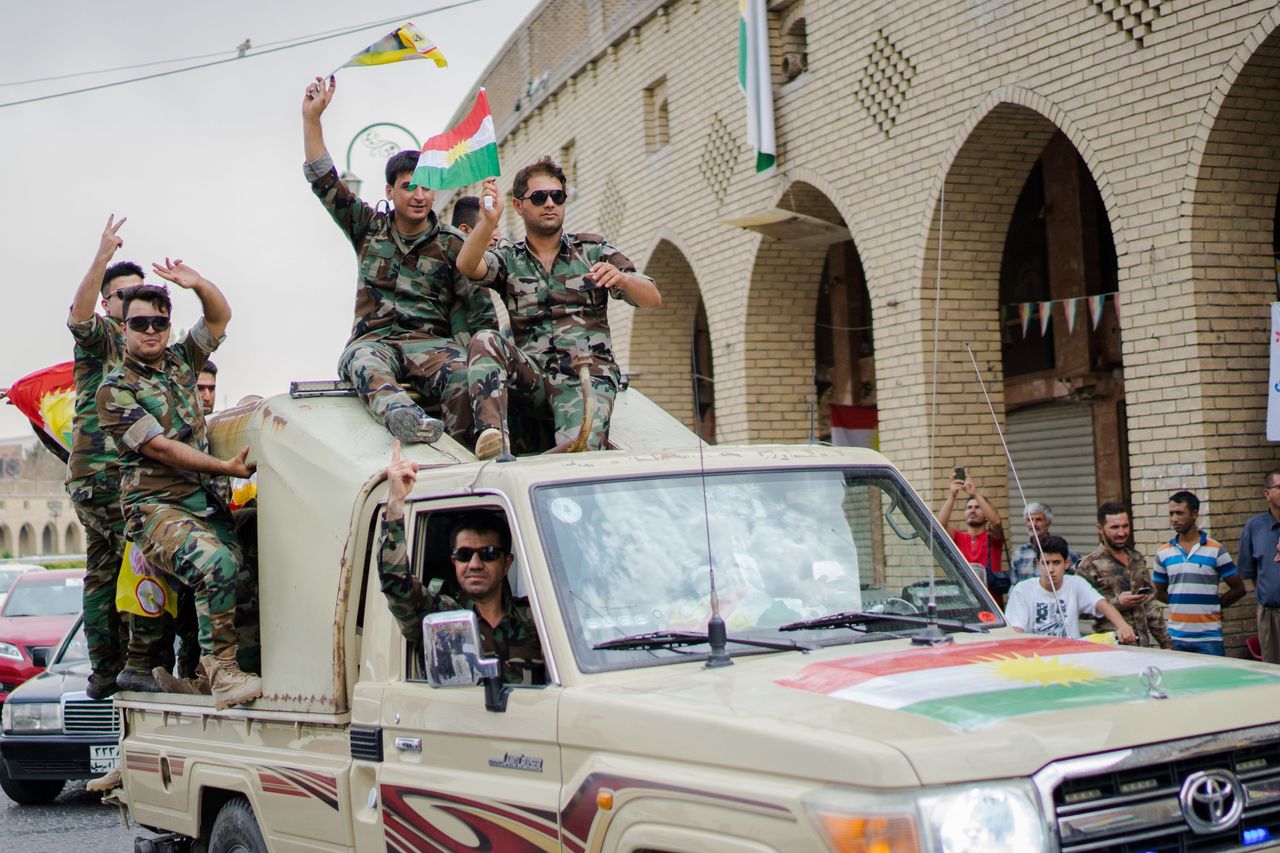
The Iraqi Kurds voted for an independent state in a referendum organized on September 25. Instead they were given dependence from an Iraqi central government.
The Kurdish Regional Government along with its Prime Minister Nechirvan Barzani met representatives of parliamentary committees. The meeting was about to prepare financial planes and reforms for 2018. 70% of a Region budget are salaries of clerk workers, uniformed services and state institutions. The Region is the largest employer. After losing most of the oil deposits in the middle of October, Kurdish politicians must consider how to bailout the budget. And there is only one idea – to cut a deal with Baghdad.
– The priority for the KRG (Kurdish Regional Government) is to reach an agreement with the Iraqi government – said Amanj Rahim, a Cabinet Secretary of KRG, during a press conference on December 13.
The Iraqi authorities are reluctant to give 17% of the budget to Kurdistan, as they had been doing before 2014. Only 12.7 % of Iraqi financial plan is intended for Kurdistan in 2018.
On September 25, the Kurds in Iraq organized a referendum on independence . It was aimed to satisfy the aspirations of the Kurds, who have been seeking to create their own State for almost a hundred years. It seemed that after the referendum they would be one step from it.
– We have not been getting money from Iraq for three years, and yet our region is able to function. We have our own authorities, the flag, the language and our traditions. We can be self-sufficient, that is why we want to be independent – claimed 33-year-old Farman Muhammed, a salesman from the central bazaar in Erbil, in the capital of Iraqi Kurdistan, just a few days before the referendum.
Indeed, it was difficult to find someone who would be against the idea of independence. Residents widely believed they would have their own state and their life would be better soon. The results of the referendum proved that perfectly. 93% inhabitants of the northern Iraq voted for independence on September 25. The turnout was over 72%.
The authorities in Baghdad have always strongly protested the referendum. On October 16, the Iraqi army and Shia militia entered Kirkuk , 80 kilometres south of Irbil. They captured the city without fighting as the Kurdish units (Peshmerga) withdrew from their positions. Kirkuk’s faith was soon shared by much of the disputed territories .
The Kurds hoped that the United States would not allow such developments. The USA are both Kurdish and Iraqi ally. However, the Americans were observing these events passively, calling only to stop the conflict and to fight against the mutual enemy – ISIS.
The loss of Kirkuk was particularly painful. 70% of Kurdish oil deposits are located in that region. The number of barrels exported daily fell from 500,000 to 250,000 between October and December. Almost 80% of entire region income comes from selling oil.
Oil profit dropped by as much as 40% and the monthly budget dropped from $565.5 million to $337.4 million. 772 million dollars a month is necessary to pay full salaries for 1.2 million public sector employees – that is more than one-fifth of all inhabitants of the region.
–Right now, the Kurdish Regional Government income is not big enough to pay the employees’ salaries – claimed Rahim.
This is the reason for government’s huge corrections in Kurdish budget. The main goal is to tighten up the system of paying remunerations to avoid situations when one person gets two salaries, or some salaries are received by so-called ghosts – people who do not work. According to Kurdish portal Rudaw.net salary cuts between the top earners are also planned. Their salaries can be reduced by up to one third and these changes will affect, among others, the high command of uniformed services.
This is the second of the three planned cuts. The first one was made in 2016 and affected most employees in the public sector. Wage reductions reached 40% back then. It was caused by Baghdad decision to deprive Kurds of budget revenue and the low oil prices. It seemed that another part of cuts would not be needed because the price of oil was rising again. However, the attack of Iraq in October forced the Kurds to change the strategy. Different fees and taxes for various services were also raised.
Kurdistan representatives hope to reach an agreement with Baghdad on financing the region from the Iraqi budget. Nevertheless, the Kurdish government is aware that it may not work in the coming months. On the other hand, Baghdad does not have to hurry in negotiations. The crisis in October proved that Kurds cannot count on strong support from key partners operating in the region. Moreover, Iraq feels strong after its Prime Minister Haider al-Abadi has announced the defeat of ISIS in whole Iraqi territory.























